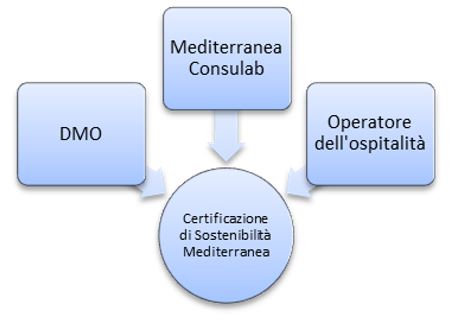SIX REASONS WHY HÔTELLERIE AND CATERING SHOULD HIRE SUSTAINABILITY MANAGERS.

Let us start with a simple matter of fact: the hôtellerie and the catering industry satisfy two primary needs for human beings: shelter and food. Consequently, environment, society and economy are strongly affected by behaviors linked to these priorities. Being so important and essential, shelter and food become major issues when talking about sustainability.
Beyond the urgency of personal satisfaction of basic needs, behaviors and priority choices should always consider a ‘superior’ global risk: uncontrolled exploitation of natural resources seriously affect future generations’ life and survival.
Hôtellerie and catering industries need sustainability managers, who must express a unique talent: to be host- empathic themselves, with a clear understanding of the guest’s expectations and of quality performances.
-
For some entrepreneurs, sustainability managers (SM) represent, in many cases, an unexpected investment. A ROI is expected, then. It is usually identified in the manager’s capacity of identifying uncontrolled waste, monitor consumption, read datas and find solutions. The entrepreneur’s expectation, his idea of ROI, is primarily to save money by ‘reducing, recycling and reusing’ . The SM (sustainability manager) must be in a position to guarantee the result;
-
A good SM does not talk green-washing, because he must have a global vision of connected interventions and innovative practices to enhance sustainability in the long run. This means that she/he will never just advice to turn to low consumption lamps: nay, she/he sees that it is not enough. In order to be sustainable hotel must invest in remote control energy saving systems. To adopt ‘green lamps’ in order to save money is an example of green-washing, if not accompanied by a long-term energy saving strategy;
-
On the guest’s/client’s side, green washing is seen as mockery. Considering that a growing awareness about sustainability is a matter of fact nowadays and customers agree to spend up to 15% more in order to enjoy a truly sustainable holiday or catering service, it would be a serious mistake just to rely on few old and worn-out green practices. The low-consumption lamps are examples: everybody adopt them at home too. Nevertheless, a hotel or a restaurant have bigger social, environmental and economic responsibilities. If they want to be champions in sustainability, they need a SM.
-
A SM helps to innovate and to keep the hotel/restaurant updated. This is a major contribution by the SM, who not only constantly reports consumption datas and rapidly take action in case of need; nay she/he contributes to empower the brand and its positioning on the market by making the House a place of true sustainable experiences for guests. In effects, sustainability efforts must be communicated: they are not only an in-house matter and if communication works well, sustainability is a powerful lever.
-
A SM interacts with all departments and plays a role with training staff to move towards sustainable practices. She/he retains a social responsibility, from this point of view; she/he creates opportunities for staff cohesion and carrier progression. These are added values which give stability and make it clear the social benefit of sustainable policies.
-
SM can definitely help marketing and sales, by promptly communicate all progresses matured through sustainable innovation. Luxury hotel and catering services are paying great attention to the latter, as their target markets are moving progressively towards durable destinations. Destinations can be durable only if their hospitality is sustainable.






No Comments